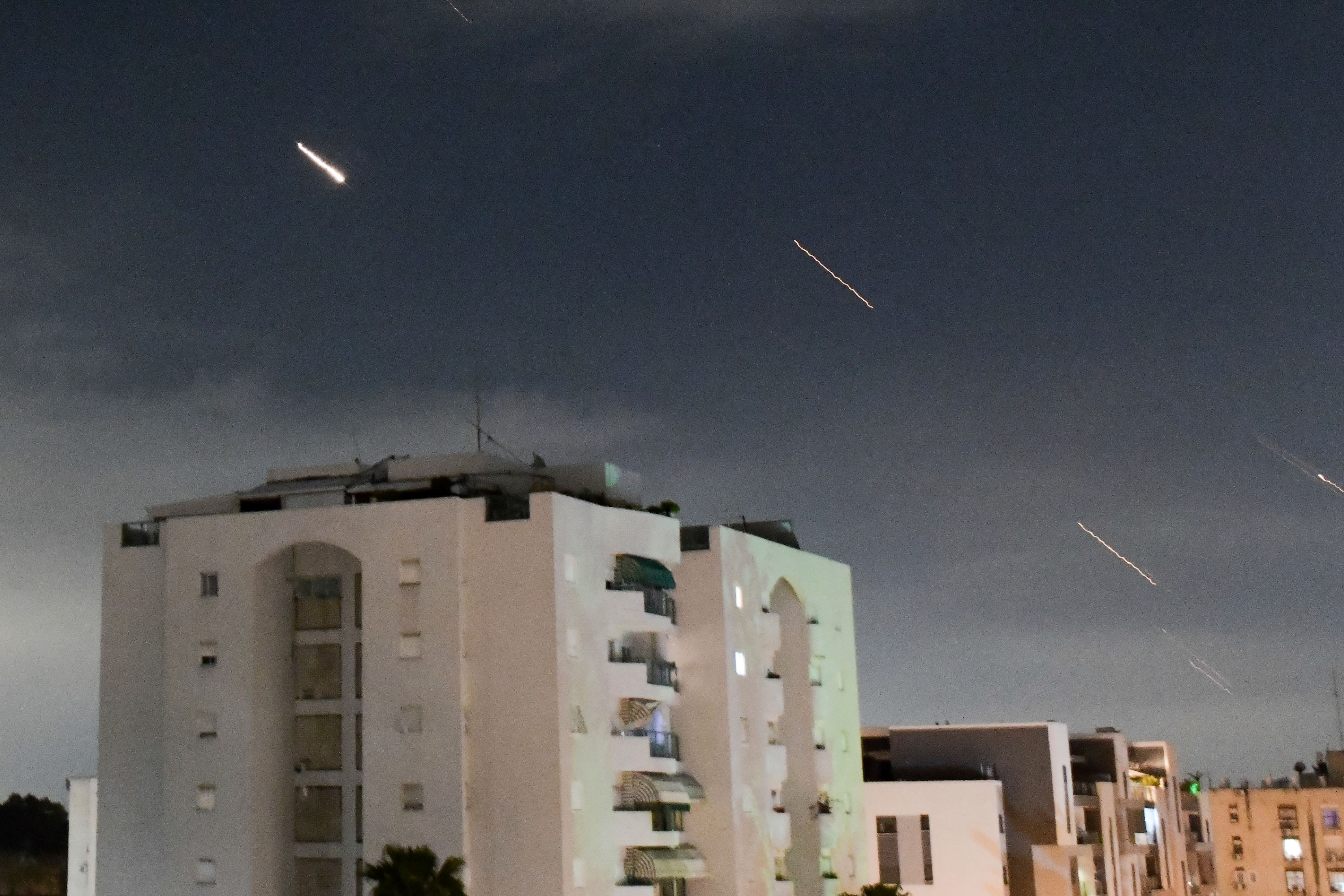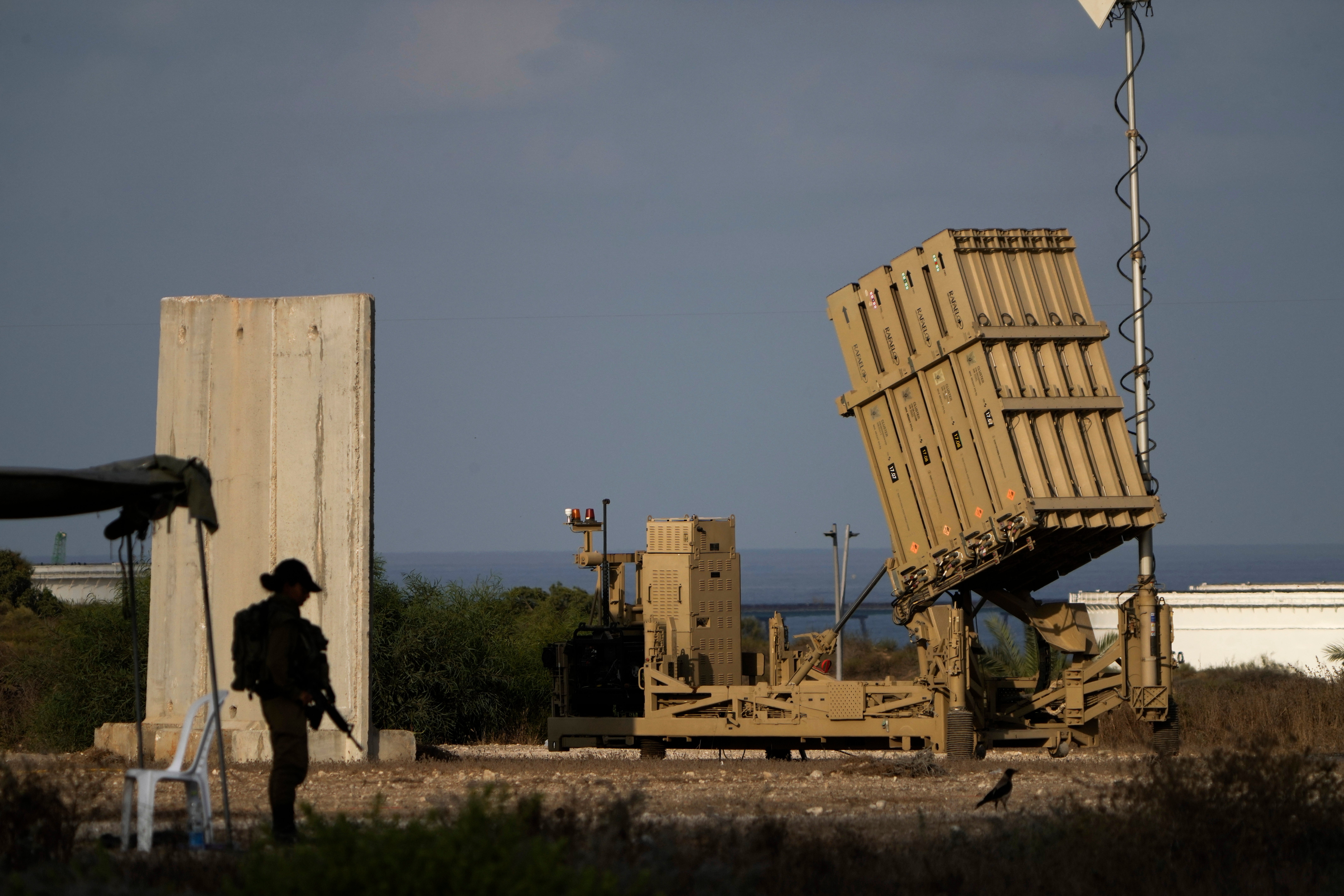Israel must not fall into a trap of retaliation and risk disaster, warns ex top diplomat Alon Pinkas
Former Israeli diplomat Alon Pinkas said Israel was facing a ‘major dilemma’ over decision to respond to Iran
Israel is facing a “major dilemma” over whether to retaliate against Iran’s unprecedented drone and missile attack, a top former Israeli diplomat has said.
Alon Pinkas, chief advisor to two Israeli prime ministers, said an Israeli response could risk a wider escalation of the war but ignoring the assault could allow Iran to “attack with impunity”.
Describing Tehran’s onslaught overnight on Saturday as a “potential game-changer” due to directly targeting Israel, he said it was crucial for Tel Aviv to consider carefully its next move.
Writing in The Independent, the leading Israeli commentator said: “An Israeli retaliatory strike, commensurate with the scale of the Iranian attack would not merely represent a tit-for-tat reaction but may potentially constitute escalation with far reaching consequences and regional implications.”

His intervention comes after the IDF said the barrage would be met with a “response” following US president Joe Biden’s warning to Israeli Prime Minister Benjamin Netanyahu that the US would not support any Israeli counterattack.
Mr Pinkas, who served as chief of staff to Israel’s foreign ministry between 1999 and 2000, said: “An Israeli retaliation could almost inevitably lead to a broad escalation and a region-wide conflict.
“This may affect oil prices, commercial maritime routs from China to Europe, US and NATO policy on Ukraine - given Iran’s close ties and mutual-support with Russia.
“Yet failure to respond would set in place a new paradigm, that Iran can attack Israel with impunity. With lessons learnt, the next round may not be as innocuous as this one turned out to be.”
On Saturday, Iran launched more than 300 missiles and drones at Israel in response to an Israeli strike on Tehran’s embassy in Damascus, Syria.
Israel claimed more than 99 per cent of the 300 drones and missiles were intercepted during the attack - with the help of Britain, the US, and Jordan.

Mr Pinkas also claimed Netanyahu wanted to broaden the war in Gaza into an Israeli-Iranian confrontation that could drag the US in.
He added: “Netanyahu wants to broaden the Gaza war into an Israeli-Iranian confrontation that conceivably would drag the US in. That is why the issue of whether or not to retaliate has become an equally American matter.”
On April 1, Israeli warplanes bombed Iran’s embassy in Syria in a strike that Tehran said killed seven of its military advisers, including three senior commanders.
Iran’s ambassador to Syria said the strike hit a consular building in the embassy compound and that his residence was on the top two floors.
Israel has long targeted Iran’s military installations in Syria and those of its proxies, but April’s attack was the first time Israel hit the vast embassy compound.
Mr Pinkas served as chief of staff to both foreign minister Shlomo Ben Ami in 2000 and foreign minister David Levy from 1999 to 2000.
He was also the foreign policy advisor to Ehud Barak in 1996 to 1999, when Barak was Chairman of the Labor party and the Opposition.
Join our commenting forum
Join thought-provoking conversations, follow other Independent readers and see their replies
Comments
Bookmark popover
Removed from bookmarks